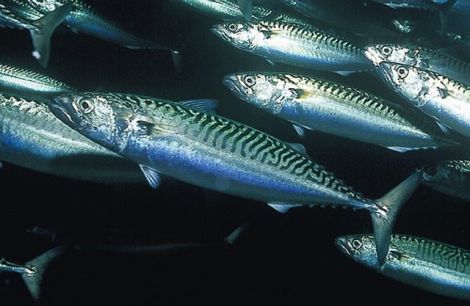News / Low carbon mackerel
NEW research has revealed the carbon footprint from mackerel fishing is far lower than land-based meat production.
The findings come after NAFC Marine Centre in Scalloway recently undertook a study into seven out of eight of Shetland’s pelagic trawlers, which account for a third of the UK’s fleet.
Scientists examined data collated between 2012 and 2014 from things like fuel emissions and refrigerant leakage.
The research, led by project officer Frances Sandison, estimates that the carbon footprint from Shetland’s mackerel fishery is 0.4t CO2e (tonnes of carbon dioxide equivalent) released per tonne of fish captured.
In comparison, beef’s carbon footprint in the UK is 10.6-19.2t CO2e, while sheep account for 11.0-13.6t CO2e and chicken 4.6-6.7t CO2e.
Sandison said: “To this end point in the supply chain it would appear that mackerel is a more efficient source of protein than most other terrestrial and aquatic systems in terms of carbon emissions.”
Shetland Fish Producers’ Organisation chief executive Brian Isbister said the study “utterly dispels the myth” that large pelagic boats are harming the planet.
“In fact, the carbon footprint of the mackerel fishery is 8.5 times lower than that of the best scoring meat product, pork, and up to 47 times lower than the worst, beef,” he said.
“It is very clear that the mackerel fishery is a very efficient, environmentally-friendly means of primary food production.”
It is expected that mackerel carbon footprint will reduce in 2015 as a result of vessels replacing R22 refrigerant gas with carbon-neutral ammonia.
The study was funded by the Arthur Laurenson Memorial Trust via Shetland Catch Ltd, the Scottish Fishermen’s Trust, the Hunter and Morrison Memorial Trust and the NAFC Marine Centre.
Become a member of Shetland News
Shetland News is asking its readers to consider paying for membership to get additional perks:
- Removal of third-party ads;
- Bookmark posts to read later;
- Exclusive curated weekly newsletter;
- Hide membership messages;
- Comments open for discussion.
If you appreciate what we do and feel strongly about impartial local journalism, then please become a member of Shetland News by either making a single payment, or setting up a monthly, quarterly or yearly subscription.











































































